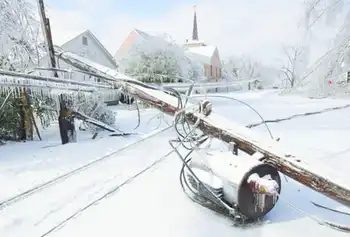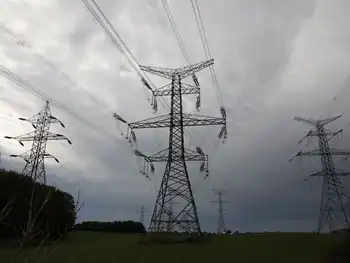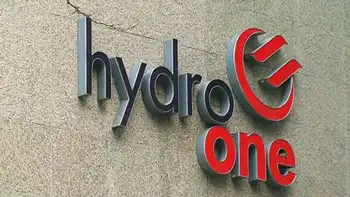How do you replace the retiring experts?
Like a number of organizations, weÂ’re facing a problem because many of our employees will be eligible to retire in the next few years. ItÂ’s my teamÂ’s job to find people to replace those weÂ’re losing. The problem is particularly acute in our control room, where 80 or so employees are in six critical positions. The jobs are so complex that summer interns and college graduates canÂ’t step right into them.
WeÂ’re similar to air traffic controllers. Our clients generate and transmit the power, and we make sure everything runs smoothly in our region. We check for scheduled maintenance and balance the power load, and, if a problem occurs, we direct our clients to reroute the power. We also ensure that all power companies have equal access to the grid, whether or not theyÂ’re our clients.
This hiring crisis is industry-wide. People apply, but when we make them an offer, they say theyÂ’ve got five years until retirement and they donÂ’t want to move to our area. I think that sometimes they may be fishing to see what other organizations are paying.
Two years ago, our organization decided that we had to come up with some solutions. One of the first things we did was to enhance our employee referral program. Employees now have several opportunities to make money by referring candidates. First, we give any employee who refers a candidate a scratch-off card with a discount for coffee, food or a movie, and we enter their names into a monthly drawing. The monthly winner gets $300, even if we donÂ’t hire the person who was recommended.
ThatÂ’s not all: any time a candidate is hired, an employee gets up to $5,000, depending on the candidateÂ’s grade level and whether the person is hired into a critical position. We also have an annual grand prize drawing of $1,000 for all employees who have recommended candidates throughout the year. Finally, we award $2,000 to the person with the highest number of referrals in a year.
Before these enhancements, we gave out only the bonuses, ranging from $750 to $2,000 for 11 jobs, and the new hire had to be on board a year before the employee could get the entire amount. The changes have provided about a third of our new hires in the last two years.
We also stepped up our college recruitment of skilled foreign workers. ItÂ’s costlier for us, because after these employeesÂ’ H-1B visas expire, we split the cost of green cards with them. We knew, however, that neither effort would totally solve our problem. We needed a program in which older control-room employees could transfer all they know about day-to-day operations to new employees, at the same time that the new hires were learning formal transmission-system operation. We assembled managers from training, operations, engineering and tariff administration and developed a self-paced apprenticeship.
The program consists of a detailed curriculum and concludes with the standard industry certification test. To keep costs down, we recruit electrical engineering graduates from colleges near us and hold small classes. The candidates we select are hired as operations associates and given a full-time salary with benefits during the training period. We also allow current Midwest I.S.O. employees to enter the program, and we take graduates who have completed an internship here or a co-op program within the industry.
So far, two groups — one with four operations associates, the other with three — have completed the program. Four are former interns. Every other week, an operations associate sits next to an employee about to retire and watches and learns. It takes a long time to understand scheduling, for example, or how to bid on energy, or that sending a certain number of megawatts through one line is more cost-effective than sending it through another line that can’t handle as much power.
We assumed that the associates would take 18 months to finish the program, but to their credit, most did it in six. It’s rigorous training — people learn three of the six positions — and the certification tests are not easy.
As associates complete the program, we match them with positions. If they donÂ’t pass the test or perform any job to our satisfaction, weÂ’ll try to find them another position in the company, but thereÂ’s no guarantee.
One of the hardest things for new people to understand is that all the people in the control room have to work together to monitor the grid. Employees known as reliability generation dispatchers not only schedule the generation of the power; they also make sure that the right amount of electrical power is transmitted. For example, if a company sends too much power through a power line, the line will melt.
The dispatch system operators help plan the amount of electricity needed for the following day, but demand varies from day to day. One power company may plan to power up four generators, but weÂ’ll tell them that according to our calculations they will need only two. The reliability generation dispatchers need to interact with the dispatch system operators, and these two positions are interconnected with the four others.
We think weÂ’ve found effective answers to replacing employees who are retiring throughout the company. I like to say weÂ’re growing our own. WeÂ’re also evaluating whether to offer retirees the option to work part time. I have an energetic intern this summer who is taking a look at that issue. I may be interested myself one day.
Related News

Canadian Scientists say power utilities need to adapt to climate change
TORONTO - The increasing intensity of storms that lead to massive power outages highlights the need for Canada’s electrical utilities to be more robust and innovative, climate change scientists say.
“We need to plan to be more resilient in the face of the increasing chances of these events occurring,” University of New Brunswick climate change scientist Louise Comeau said in a recent interview.
The East Coast was walloped this week by the third storm in as many days, with high winds toppling trees and even part of a Halifax church steeple. Nova Scotia Power says it has weathered nine storm days so…





